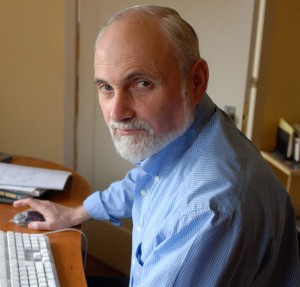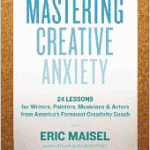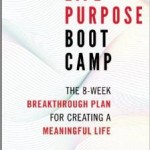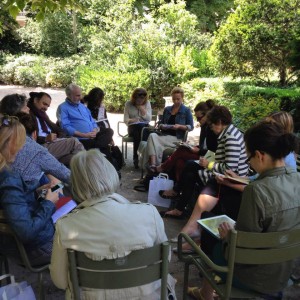Tea for Creatives: Dr. Eric Maisel America’s Creativity Coach
 Dr. Eric Maisel is America’s foremost creativity coach and founded the profession of creativity coaching. He is the author of more than 40 books in the areas of creativity, meaning and mental health. Among the many books Dr. Maisel has published for creative and performing artists are Secrets of a Creativity Coach, Fearless Creating, Coaching the Artist Within, Affirmations for Artists, Performance Anxiety, Write Mind, Deep Writing, A Writer’s Space, A Writer’s Paris, A Writer’s San Francisco, Creative Recovery and Creativity for Life. He is a recognized expert on life purpose and meaning. His forthcoming book in this area is Life Purpose Boot Camp (New World Library, 2104). A licensed California psychotherapist and advocate for mental health reform, Dr. Maisel writes the Rethinking Psychology column for Psychology Today and contributes pieces on mental health to the Huffington Post. His books on mental health include Rethinking Depression and The Van Gogh Blues. You might think Dr. Maisel is endlessly busy with writing books and coaching private clients, yet he finds (or possibly creates!) time to present workshops and trainings at centers like Omega, Kripalu, Esalen, Hollyhock, and Rowe as well as international venues in Paris, Berlin and other exotic locations. Dr. Maisel lives in the San Francisco Bay Area where he maintains an active creativity coaching practice.
Dr. Eric Maisel is America’s foremost creativity coach and founded the profession of creativity coaching. He is the author of more than 40 books in the areas of creativity, meaning and mental health. Among the many books Dr. Maisel has published for creative and performing artists are Secrets of a Creativity Coach, Fearless Creating, Coaching the Artist Within, Affirmations for Artists, Performance Anxiety, Write Mind, Deep Writing, A Writer’s Space, A Writer’s Paris, A Writer’s San Francisco, Creative Recovery and Creativity for Life. He is a recognized expert on life purpose and meaning. His forthcoming book in this area is Life Purpose Boot Camp (New World Library, 2104). A licensed California psychotherapist and advocate for mental health reform, Dr. Maisel writes the Rethinking Psychology column for Psychology Today and contributes pieces on mental health to the Huffington Post. His books on mental health include Rethinking Depression and The Van Gogh Blues. You might think Dr. Maisel is endlessly busy with writing books and coaching private clients, yet he finds (or possibly creates!) time to present workshops and trainings at centers like Omega, Kripalu, Esalen, Hollyhock, and Rowe as well as international venues in Paris, Berlin and other exotic locations. Dr. Maisel lives in the San Francisco Bay Area where he maintains an active creativity coaching practice.
Even though he drinks far more coffee than tea, we’re certain his insights on creativity and creative process will inspire you to get past your own creative anxiety and start your next creative project right away!
It seems everyone is on the Web offering up their version of creativity, of meaning making. Has the digital age changed what it means to be creative? If so, in what ways?
I wouldn’t know <smile>. I have no idea if there are contemporary Beethovens, Van Goghs, or Dostoevskis out there—or not—as I don’t keep track. I don’t know if there is “more” creativity out there or if there is “less.” I only know that the digital age has helped me enormously. I used to have to retype whole manuscripts (with carbon paper and white-out) in order to make corrections! The change from typewriter to computer has certainly contributed to my ability to write fifty or more books – and also made me “more creative,” because I can move along with ideas at the speed at which I have them, rather than having to “wait” for the typing and retyping. This is no “big picture” answer <smile>, just my personal reporting on how much the digital age has helped me personally.
Some 30 years ago, you began the profession of creativity coaching. Two of the tenets throughout your body of work are “begin in the middle of things” and “crack through resistance.” Can you explain these and why they are so vital to the creative process?
They are both simple but important ideas. If you wait to get started on your creative work—if you wait for summer vacation, when the remodel is done, when you’re in a better mood, when the in-laws leave, when you feel less lonely, and so on—you will wait a very long time … and maybe forever. We must create right now, in the middle of everything, including our own moods and our personality. As to resistance, there is a thin sheet of resistance between us and our work that is almost always present, having to do with our reluctance to making mistakes and messes and our reluctance to facing the anxiety of creating. So we need tactics to crack through that everyday resistance. Without them, we may well never get started!
What unexpected directions has creativity/ being creative taken your life and career?
Ah, over 40 years <smile>? It has lead me to present workshops all over the world—Paris, London, Prague, Berlin, Rome, etc.—which I had no idea I would ever do. It has pushed me to the forefront of the movement to reform mental health. It has allowed me to do something I knew I wanted to do even as a very young man, that is to “update existentialism” with some new thinking on meaning. It has allowed me one adventure after another, as each book is a new adventure. This year (2014) I will have three books come out, a novel about “moving Israel to a safer location,” a book about creativity coaching (Secrets of a Creativity Coach) and a book I love called Life Purpose Boot Camp. Each was its own adventure! Accepting the realities of the creative process has allowed for all this.
Describe the biggest creative obstacle you’ve faced? How did you work through it?
Well, sometimes the book you want to write is simply not available but you feel determined to write it anyway—or maybe you don’t know that it isn’t available. What you do then is make a big mess. You end up with a book that doesn’t work. I’ve done that several times. Twenty years ago I wanted to write a book about meaning—and wrote it—but I could only write good books about meaning in the last few years. So that first book about meaning, for which I got a nice advance, was a complete mess and couldn’t be published. I’m not sure you would call that “working through” a creative obstacle—that is probably more like working and having the creative obstacle win <smile>! Or, let us say, temporarily win!
You write about the creative anxiety that arises when an artist doubts what she wants to create has meaning—the inner critic rises up in a loud voice: “Who am I kidding, no one will read this/appreciate this work!” And, on the flip side, the anxiety that arises with the realization that the work created (whatever it may be) really does matter. What are your top two strategies for mastering this creative anxiety?
 Top two? In Mastering Creative Anxiety I present 20 or 30, so there are lots of tactics and strategies available. To pick out two, I would say that you must convince yourself that what you are doing matters to you—that your creating is a genuine meaning opportunity and is worth the anxiety that will attend to the process. The second is getting a grip on your mind and not thinking thoughts that don’t serve you, thoughts like “There are so many writers our there” or “It’s much too late for me.” The top two are existential and cognitive.
Top two? In Mastering Creative Anxiety I present 20 or 30, so there are lots of tactics and strategies available. To pick out two, I would say that you must convince yourself that what you are doing matters to you—that your creating is a genuine meaning opportunity and is worth the anxiety that will attend to the process. The second is getting a grip on your mind and not thinking thoughts that don’t serve you, thoughts like “There are so many writers our there” or “It’s much too late for me.” The top two are existential and cognitive.
Does a creative ever overcome creative anxiety? Do you experience it?
You can learn to manage it, which is not the same as overcoming it. Every time you set the bar higher or embark on a project that is perhaps just out of your reach, the anxiety is bound to return. For me, I still experience it before television interviews (and not before any of the five hundred radio interviews I’ve done), when I speak to agents and editors about something I am trying to sell them, and regularly throughout difficult projects.
Who (person) or what (place, a ritual, a location, etc.) inspires a master creativity coach?
Ah, that is easy! For me it is Paris. I love its intellectual traditions, its style, its look, how it makes me feel, and how it provides the space and place for me to percolate new ideas. I don’t go as often as I would like but I am sometimes able to go and stay for as long as two months—those are grand months.
What character from a book or film best represents your philosophy on life?
Oh, probably Atticus Finch from To Kill a Mockingbird. Great humanist values, lots of courage, walking the walk, being a good father, etc. I am not alone in this – I believe he typically ranks #1 in polls of most admired character in literature.
Any final words of wisdom or updates on your work that you’d like to share with our audience?
 I’d just like folks to know about my forthcoming book Life Purpose Boot Camp, which comes out October, 2014 from New World Library, and my 5-day deep writing workshops which I lead five times a year—in the spring at Kripalu, early spring/summer in Europe, summer at Esalen, fall at Omega, and early winter in San Francisco. I also train creativity coaches all year round.
I’d just like folks to know about my forthcoming book Life Purpose Boot Camp, which comes out October, 2014 from New World Library, and my 5-day deep writing workshops which I lead five times a year—in the spring at Kripalu, early spring/summer in Europe, summer at Esalen, fall at Omega, and early winter in San Francisco. I also train creativity coaches all year round.
Tags: art, Artists and Anxiety, coaching, Creative Anxiety, creative process, creativity, creativity coach, Deep Writing, Eric Maisel, life coach, life purpose boot camp, Possibiliteas, tea and creativity, tea for creatives, Writers Anxiety
Trackback from your site.

